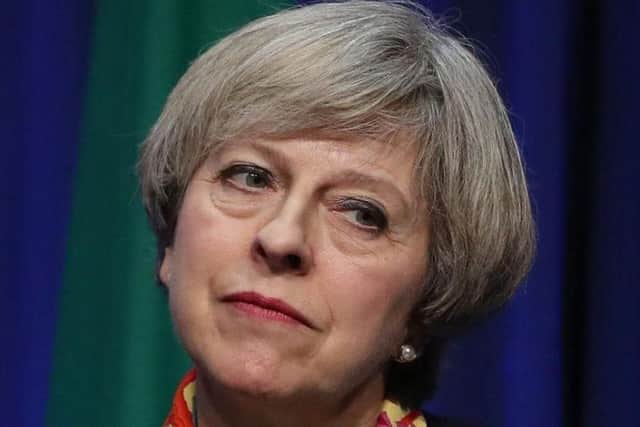Brexit war cabinet to meet again over customs deadlock
and live on Freeview channel 276
Members of two ministerial working groups spent Monday discussing possible tweaks to the “customs partnership” and “maximum facilitation” plans that have divided the Cabinet, while the Prime Minister herself briefed Tory MPs on details of the two options.
The EU is pressing for “substantive progress” from Britain on the future of the Irish border in time for a crunch European Council summit just six weeks away.
Advertisement
Hide AdAdvertisement
Hide AdBut the meeting of the Brexit sub-committee is thought unlikely to unite behind a solution when it meets on Tuesday.


Tory Jacob Rees-Mogg, who leads the European Research Group of Conservative Brexiteers, warned the Prime Minister she must show more “firmness and tenacity”.
Writing in the Daily Telegraph, the MP accused Brussels of treating Britain with “disdain” and using the Irish border as a way to stop Brexit.
“If Brussels or Dublin insist upon rejecting all the practical approaches that we propose it is, with regret, that we will have to graciously accept their rejection,” he added.
Advertisement
Hide AdAdvertisement
Hide Ad“If they either do not want to or simply cannot broker a deal, a deal will not be done.”
Mr Rees-Mogg clashed with the Prime Minister during a briefing for Tory MPs in Downing Street after suggesting the UK should keep the border with Ireland open after Brexit.
Mrs May reportedly told him that EU rules would oblige Ireland to construct border infrastructure to protect the single market and warned against any move that might anger moderate nationalists in Northern Ireland.
One MP present at the meeting told the Times the pair clashed over the Irish issue and Mrs May “slapped him down very hard”.
Advertisement
Hide AdAdvertisement
Hide AdBut a Brexiteer source told the Press Association it was “tosh” to suggest that the Union could be jeopardised and suggested that the reported “slap-down” was “Number 10-ese for “they disagreed, she said something weird and implausible”.
Under a customs partnership, the UK would collect tariffs for Brussels. The alternative model being considered by the Cabinet is known as maximum facilitation, or “Max Fac”, which would rely on new technology and trusted trader schemes.
Michel Barnier, the EU’s chief Brexit negotiator, told ministers from the remaining 27 member states that “little progress” had been made on the issues of Ireland and governance since the Council last met in March.
There were two rounds of negotiations before the “key rendezvous” of the June European Council summit, he said.
Advertisement
Hide AdAdvertisement
Hide AdMr Barnier added: “The clock is ticking and we have to conclude and to finalise this agreement ... before October or November, because we have to keep the time for the ratification by the European Parliament, the European Council and the British side.”
George Hamilton, Chief Constable of the Police Service of Northern Ireland, meanwhile, raised concerns about the border problem.
He told BBC Two’s Newsnight: “The uncertainty around Brexit and the border is a concern, certainly from a policing perspective.
“We wouldn’t want to see anything that looks like physical infrastructure at the border, primarily because we assess that that could symbolically become the focus of attention and targeting by violent dissident Republican groups.”